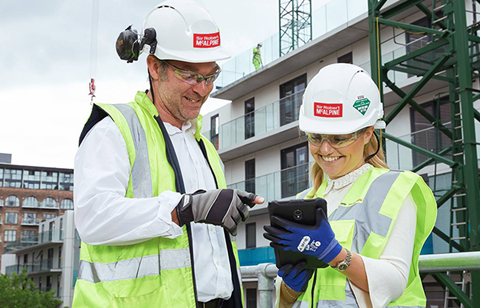
With construction sector vacancies currently running at a 20-year high, construction and civil engineering business Sir Robert McAlpine is all too keenly aware of the importance of getting the balance right when it comes to reward and recognition, argues executive director of people and infrastructure Karen Brookes.
“It is something that, as an employer, now, in this sector, you ignore at your peril. It is a very tough market. I’m not saying we’re not losing anyone, but our retention levels are currently running at 90% or greater, which is really important,” she says.
Part of this success is down to the extensive package of both financial and non-financial rewards offered to the organisation's 2,200 employees. This includes paid leave ‘birthday days’, instant ‘recognition cards’ and recognition awards up to £5,000. This all comes on top of generous family-friendly benefits, pension, healthcare benefits, life assurance, access to an employee assistance programme (EAP), sabbaticals and long-service awards, among others.
To ensure the balance of these rewards resonates with employees, the employer regularly tests out ideas on its employee network as well as via its seven ‘affinity’ networks, which represent different employee cohorts.
“If [employees] can see the direction of travel in [their] career; see that [they are] being treated and rewarded fairly, both non-financially and financially; see that [they are] an active part of what is going on in the work environment, this makes a huge difference to how [they] feel and how motivated [they] are,” Brookes says.
When it comes to communicating the value of all this, employees can use an Sir Robert McAlpine Reward Hub, highlights Brookes. “Individuals will shortly be able to access their total reward statement all year round through the hub. [They] can also print off [their] pay slip, P11D or P60. [They] can send someone a recognition card, access discounts through it, and look at things like the dental plan and private medical scheme, which tend to be less easy to quantify and people sometimes can forget they have.
“It is about reminding people what they have. If they’re having a difficult time at work, and perhaps thinking about moving on, it is about saying, ‘actually, don’t forget to value all of these things as well’,” she adds.






![[FisherA]_portrait_web_crop_newstyle](https://d1m12snq5oxhll.cloudfront.net/Pictures/100x67/9/2/6/108926_fishera_portrait_web_crop_newstyle_714878.jpg)




